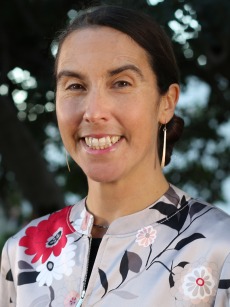
Dr. Rae Erin Dachille (Ph.D. in Buddhist Studies, University of California at Berkeley) specializes in the religious and artistic traditions of Himalayan Buddhism. Her research focuses upon representations of the body in art, ritual, philosophy, and medicine in Tibetan and Sanskrit sources. Dr. Dachille’s book, Searching for the Body: A Contemporary Perspective on Tibetan Buddhist Tantra (Columbia University Press), explores a heated scholastic exchange between two prominent fifteenth-century Tibetan monks on a ritual practice known as body mandala. The book demonstrates the value of reading esoteric sources in relationship to broader conversations on embodiment occurring across and beyond the humanities today.
Dr. Dachille’s work reflects her enduring interest in revealing the many ways in which Buddhist sources may enrich our approach to studying the body as well as to formulating new theories of representation. She continues to develop new curricula focused on gender, ritual and representation in the visual, textual and performative cultures of South Asia and the Himalaya. She currently teaches courses on Tibetan Buddhism, Buddhist art, Buddhism and Healing, Tantric Buddhism, and theories and methods for the study of religion. Dr. Dachille is an affiliate faculty member in Gender and Women's Studies as well as in Social, Cultural and Critical Theory. She is the winner of the 2024 Chatfield Outstanding Tenured Researcher of the Year Award.
Areas of Specialization: Indo-Tibetan Buddhism; Tantra; Visual Cultures of Asia; Representation; Embodiment

